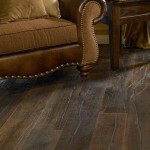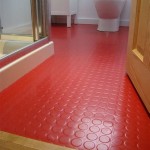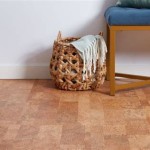Laying Vinyl Flooring On Concrete Slab: A Comprehensive Guide
Installing vinyl flooring over a concrete slab may seem like a daunting task, but it is certainly achievable with the right preparation and materials. To ensure a durable and visually appealing result, meticulous attention to key aspects is crucial. This guide will delve into the essential steps involved in laying vinyl flooring on a concrete slab, empowering you to execute this project successfully.
Step 1: Subfloor Preparation
A smooth and level surface is paramount for successful vinyl flooring installation. Begin by thoroughly cleaning the concrete slab, removing any dirt, debris, and potential adhesives. Using a straight edge or level, inspect the slab for any unevenness or imperfections. If necessary, use a concrete leveling compound to fill any depressions or grind down any bumps.
Step 2: Moisture Testing
Concrete slabs are susceptible to moisture penetration, which can compromise the integrity of vinyl flooring. Conduct a moisture test using a moisture meter to determine the moisture levels within the concrete. Readings above 12% relative humidity indicate excessive moisture, requiring the installation of a vapor barrier or moisture mitigation system before laying the vinyl.
Step 3: Vapor Barrier Installation
A vapor barrier serves as a protective layer against moisture rising from the concrete slab. Choose a polyethylene vapor barrier with a thickness of at least 6 mil. Unroll the barrier over the prepared slab, overlapping the seams by at least 6 inches. Secure the vapor barrier using tape or adhesive.
Step 4: Underlayment Installation
An underlayment provides cushioning and sound insulation beneath the vinyl flooring. Select an underlayment designed for use with vinyl flooring and cut it to fit the dimensions of the room. Lay the underlayment over the vapor barrier, ensuring a snug fit without any gaps.
Step 5: Vinyl Flooring Installation
Plan the layout of the vinyl flooring planks or tiles before beginning installation. Start by laying a few rows without adhering them to the underlayment. This allows you to check for alignment and make any necessary adjustments. Gradually adhere the vinyl flooring, working from the center of the room outward. Use a roller or tapping block to ensure proper adhesion.
Step 6: Trimming and Moldings
Once the vinyl flooring is laid, trim the edges to fit the contours of the room. Use a utility knife or a flooring cutter to make precise cuts. Install appropriate moldings, such as baseboards, quarter rounds, or transition strips, to conceal the edges and provide a finished look.
Step 7: Maintenance Tips
Maintaining vinyl flooring is relatively straightforward. Regular sweeping or vacuuming with a soft brush attachment removes dirt and debris. For deeper cleaning, use a manufacturer-recommended vinyl flooring cleaner and a damp mop. Avoid using abrasive cleaners or harsh chemicals, as they can damage the flooring.
By following these essential steps and paying close attention to detail, you can create a beautiful and durable vinyl floor over a concrete slab. Remember to use quality materials, take your time, and be meticulous in your execution. With proper preparation and care, your vinyl flooring will provide years of enjoyment and enhance the aesthetic appeal of your space.

How To Prepare A Concrete Floor For Vinyl Flooring Parrys

Tips For Installing Vinyl Plank Over Concrete Floors Lemon Thistle

Vinyl Plank Flooring On Uneven Concrete

How To Install Vinyl Plank Over Concrete Orc Week 4 5 The Happy Housie

Easy Ways To Install Vinyl Plank Flooring On Concrete

Easy Ways To Install Vinyl Plank Flooring On Concrete

Lvp Flooring Installation How To Install Luxury Vinyl Plank In A Basement Diy

Tips For Installing Vinyl Plank Over Concrete Floors Lemon Thistle

How To Install Vinyl Plank Over Concrete Orc Week 4 5 The Happy Housie

Easy Ways To Install Vinyl Plank Flooring On Concrete
See Also







